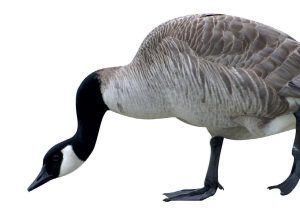Be it raccoons, possums, aquatic fowl or other forms of natural wildlife, the IOP City Council is nearing passage of an island-wide ordinance banning all feeding of these animals.
The initiative came from the IOP Police Department to boost both animal and human safety, prevent the spread of diseases associated with wildlife feeding and, most importantly, to keep the balance of boundaries between humans and wildlife.
“Residents already call us about this issue,” said IOPPD Police Chief Kevin Cornett. “And it’s just as much to keep the animals safe as it is to keep people safe.”
Council discussed and passed the ordinance on first reading July 23 by a vote of 7-2. While the wording is likely to change in places for clarity, if the measure passes on second reading, which is expected in August, violations from then on are punishable with fines up to $1,087 or up to 30 days in jail.
“This is the first time we have attempted an ordinance like this,” said Sgt. Matt Storen, special services and public information officer with IOPPD. “And we did so because feeding wild animals can have many negative consequences to the animals and the surrounding environment.”
For example, suppose squirrels and raccoons regularly visit your yard. Further suppose you see no harm in leaving out table scraps or other food for them to enjoy. What tends to happen, however, is the squirrels and raccoons start to become dependent on these scraps and stop foraging in their natural habitat. And animals that prey on them, such as the island’s growing coyote population, seek them out in neighborhoods and become a bigger problem for humans.
“Predators, like coyotes, follow their prey wherever they go,” Storen said. “When that happens, they come further into more populated areas of the island where they might not have hunted in years past.”
Other problems that come from feeding wildlife include:
Disease. When animals gather in large numbers due to a steady food source, diseases harmful to humans, such as rabies and canine distemper, can spread more quickly at feeding sites. Other diseases include leptospirosis, a bacterial infection spread through the urine of infected animals; hantavirus, which causes difficulty breathing; and Baylisascaris, an intestinal parasitic infection in raccoons also known as raccoon roundworm.
Nutrition. Wild animals have specialized diets and can become malnourished or die if fed the wrong foods – similar to a home pet that develops obesity or heart disease from eating table food.
Aggression. Wildlife animals that become accustomed to people can lose their fear of them. While this might sound positive on the surface, it can lead to animals becoming aggressive toward humans and even intrusive – such as Canada geese.
These geese occupy urban areas because there is plenty of food and water, a low risk of predators and humans that tend to leave them alone except for throwing them bread crumbs and other food. The geese have not only lost their fear of humans, they are prone to attack if you invade their carved-out urban space.

“People should remember that wild animals are adept at finding their own food,” said Billy Dukes, chief of wildlife with the South Carolina Department of Natural Resources. “Feeding wildlife, even inadvertently, causes animals to become habituated to human presence and lose their natural wariness around them, increasing the likelihood of a bite or scratch from an animal.”
Other wildlife that would fall under the new wildlife feeding ban ordinance would include game and nongame species such as deer, coyotes and skunks. The ordinance was first presented at the IOP Public Safety meeting in mid-July, and came partly from resident concerns about neighbors intentionally feeding raccoons.
“We started hearing earlier this year when the coyote situation was sort of out of hand and we were seeing a lot of encounters and sightings,” said City Administrator Desirée Fragoso.
Councilmen Blair Hahn and Jimmy Ward, however, cautioned against carrying this kind of measure too far. Hahn said that bird feeders should be excluded, and also questioned whether the new ordinance was necessary since the city already has a nuisance measure in place.
“If anybody creates a danger to public health, peace, safety, morals or decency, they are supposed to be noticed to stop,” Hahn said. “They can be fined up to $500 or put in jail for 30 days.”
Ward agreed, adding that any ordinance implemented to address this issue should “deal with nuisances.”
Cornett pointed out that as written, the nuisance ordinance does not have enough teeth to enforce, as the simple feeding of raccoons and waterfowl does not constitute a public nuisance.
“I think when you have something that is a little more well-defined, it’s easier to defend in court when you make that charge,” Cornett added. “But I think we want to add language that says this does not apply to feeding normal birds.”
By L. C. Leach III




Leave a Reply